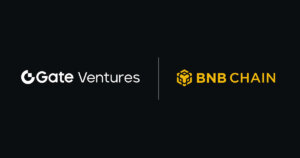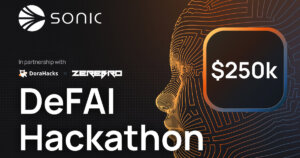 Chasing the DeFi hype and ‘apeing’ in yield farms with crypto personality Matthias Mende
Chasing the DeFi hype and ‘apeing’ in yield farms with crypto personality Matthias Mende Chasing the DeFi hype and ‘apeing’ in yield farms with crypto personality Matthias Mende
Matthias Mende, the chief strategy officer of Block Gemini and the founder of MEMMOS, is a Dubai-based crypto entrepreneur and socialite who believes in founder-driven stories. He says “business leadership equals thought leadership,” and that if people get to know founders, they will ultimately “have trust in what” is created. Today, Mende sat down with […]
Matthias Mende, the chief strategy officer of Block Gemini and the founder of MEMMOS, is a Dubai-based crypto entrepreneur and socialite who believes in founder-driven stories. He says “business leadership equals thought leadership,” and that if people get to know founders, they will ultimately “have trust in what” is created.
Today, Mende sat down with Alex Fazel, the host of crypto edutainment channel CryptoNites, to discuss Bitcoin, decentralized finance (DeFi), yield farms, and a bit about his own journey to the crypto sphere in a 38-minute podcast.
For him, the journey from childhood to today wasn’t one exactly filled with roses. I came here (Dubai) in 2007 because I’ve been a born entrepreneur so I was already making money at the age of nine and I was selling Kinder surprise figures,” he reminisced in the podcast, explaining how the entrepreneurial bug bit him in the initial years.
Here’s a snippet of it all!
Talking DeFi with Mende
Yield farming is the shiny, new (old?) crypto toy that sees token holders lock up their tokens on a farm in order to provide liquidity to a decentralized crypto exchange or other DeFi protocols and earn a cut of fees.
And with some farms giving as much as 1,000% annualized yields, the whole yield farming game became a major frenzy last year. Some critics were, perhaps rightfully (there’s an awful lot of scams in this space), negative about the whole thing, but as far as Mende’s is concerned, farming is a relatively safe activity.
“I personally love yield farming because they pay so much return and it’s very safe. I believe it’s safe for anybody to use them. It’s just a little bit complicated,” he said.
“I like Aave very much. I like Cream. I even like Sushi. But personally, I also like decentralized exchange exchanges. And one of my favorite ones is actually Serum,” he added.
Serum is a DEX based on the high-speed Solana blockchain, the latter boasting transactional processing speeds of over 65,000 per second!
“And the nice thing was they created this so the code is available to be copied. And they made something that they wanted to encourage people to actually create multiple DEXes that had liquidity from the main Serum, which is like a kind of pool where all the liquidity are together” said Mende, adding a bit about how Serum works.
As such, he’s looking at Polkadot, another high-speed blockchain projects that aims to be the blockchain of blockchains. “Polkadot is a very good blockchain and all the Polka projects, they are very interesting,” said Mende, adding:
“And Synthetix is very interesting. I mean, there’s really a lot of stuff, you know, like a lot of this, this tech, these tokens, (and) they are still improving, they are still rolling out.”
(Catch the rest of the show, available for streaming in its entirety right below!)





 Elon Musk
Elon Musk 
































































 AAVE
AAVE




